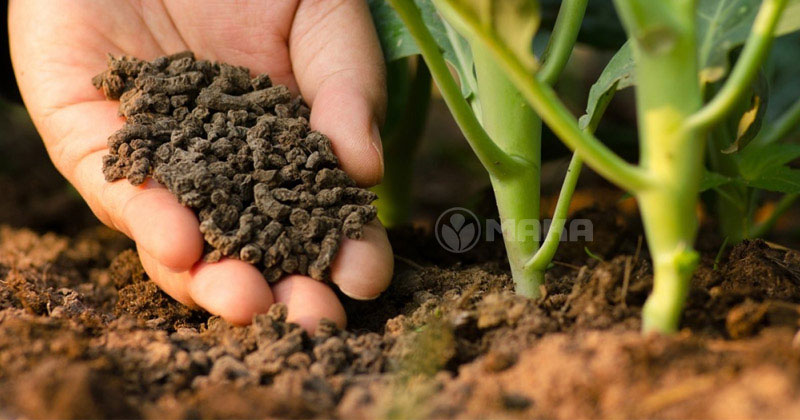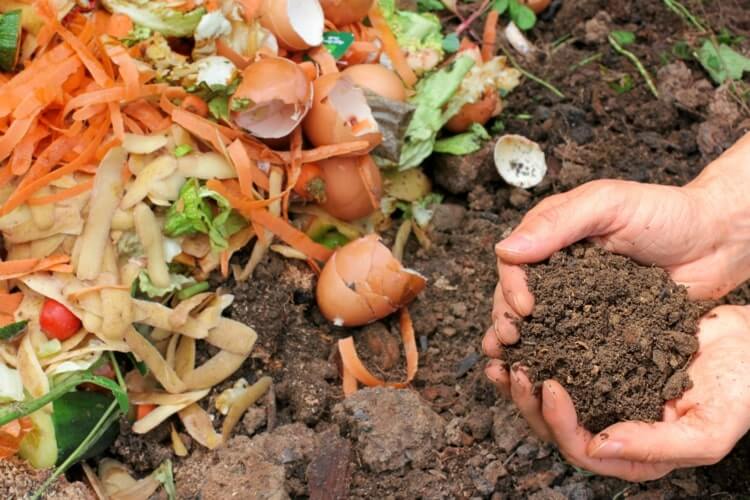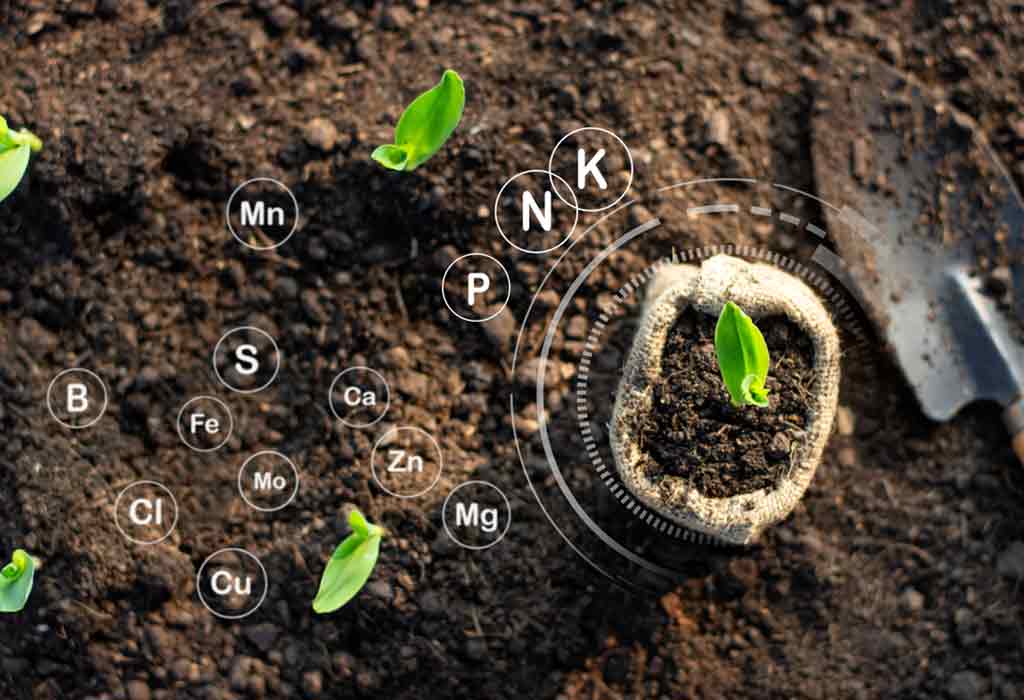1. What is organic fertilizer?
Organic fertilizer is a special type of fertilizer produced from natural sources such as manure, coffee grounds and organic waste. The special thing about organic fertilizer is that it does not contain synthetic chemicals or artificial additives, helping to protect consumer health and the environment. Instead, it is created through the process of biodegradation, in which microorganisms such as bacteria, molds and insects help convert organic matter into important nutrients for plants.
Organic fertilizers play an important role in providing nutrients to plants and improving soil quality. Fertilizer contains macro, micro, and macronutrients that help the development and growth of plants.
2. The most popular types of organic fertilizers today:
2.1. Traditional organic fertilizer:
Traditional organic fertilizer is a type of fertilizer produced from organic animal waste such as cow manure, pig manure and poultry manure. This is a natural and recyclable source of fertilizer from animal waste, helping to utilize and convert it into a source of nutrients for plants.
The manure production process involves collecting and processing organic waste from barns or animal waste management systems. Waste is treated and composted under special conditions, often over a long period of time to ensure complete breakdown and decomposition.

2.2 Industrial organic fertilizer
Microbial organic fertilizer a type of fertilizer created by stimulating the biological decomposition of organic substances through the use of microorganisms. Microorganisms in this manure include beneficial bacteria and other microorganisms, which play an important role in the process of converting organic matter into useful nutrients for plants.
Bio-organic fertilizer is a type of fertilizer produced from organic raw materials from plants, animals or microorganisms. The production process combines the use of microorganisms and biological processes to create a product that is nutritious and beneficial to plants. This manure is created through natural decomposition or biological processes such as fermentation, microbial digestion, heat treatment or other treatment technology. This process helps retain a large amount of nutrients such as nitrogen, phosphorus, potassium, carbon and trace elements necessary for plant growth.
Mineral organic fertilizer a useful natural fertilizer produced by combining organic and mineral sources. Includes manure, crop fertilizer and other organic waste combined with mineral sources such as limestone, granite, phosphorus and potassium. Together they create a nutrient-rich fertilizer that improves soil structure and provides essential trace elements for plants to grow strongly.

3. Advantages and disadvantages of organic fertilizers:
3.1 Advantages of organic fertilizers
Sustainability: Manufactured from natural raw materials and without the use of toxic chemicals. This helps protect the environment and creates a sustainable farming system.
Improves soil structure: Able to improve soil structure by increasing aeration, better water absorption and long-term retention of nutrients in the soil.
Protects the soil ecosystem: Increases biodiversity in the soil, creating favorable conditions for the life of beneficial microorganisms. This helps maintain a healthy and balanced soil ecosystem.
3.2 Disadvantages of organic fertilizers
Decomposition time: Compared to chemical fertilizers, the decomposition process of organic fertilizers can take longer. This requires the user to have patience and take the time to observe and take care of the plants.
May contain impurities: Some fertilizers may contain impurities such as grass or grass seeds, making it difficult to control weeds in the garden.
Ability to provide nutrients unevenly: Organic fertilizers may not provide nutrients in the same proportion as chemical fertilizers. Therefore, controlling and considering the amount of fertilizer used is important to ensure plants receive enough necessary nutrients.

4. How to use organic fertilizer
Fertilize according to crop needs: Understand the nutritional needs of each crop and fertilize in the appropriate ratio. Each type of plant has different nutritional needs, so fertilizer should be applied in the right amount and ratio needed for each type of plant. This ensures that each plant will receive the nutrients it needs for optimal growth and production.
Choose the right fertilizer: There are many different types of organic fertilizers, and each type has its own advantages and characteristics. Learn about the different types of organic fertilizers and choose one that suits your plant’s needs and the soil characteristics of your garden.
Dosing fertilizer: To ensure effective use, dose fertilizer accurately. Too much fertilizer can harm plants, and too little fertilizer can fail to meet the plant’s nutritional needs. Refer to the manufacturer’s instructions for use or professional advice for appropriate dosage and frequency of use.
Distribute fertilizer evenly: When using, be sure to spread fertilizer evenly over the entire planting area. This helps ensure plants receive all the nutrients they need and avoids concentrating fertilizers in a single location which is harmful to plants.






Business employee wellness programs
I was recommended this website by my cousin I am not sure whether this post is written by him as nobody else know such detailed about my trouble You are amazing Thanks
Business improvement strategies
Engaging presentations that turn every meeting into a delightful experience.
Business decision-making processes
Project management skills executed with the precision of a well-orchestrated marketing campaign.